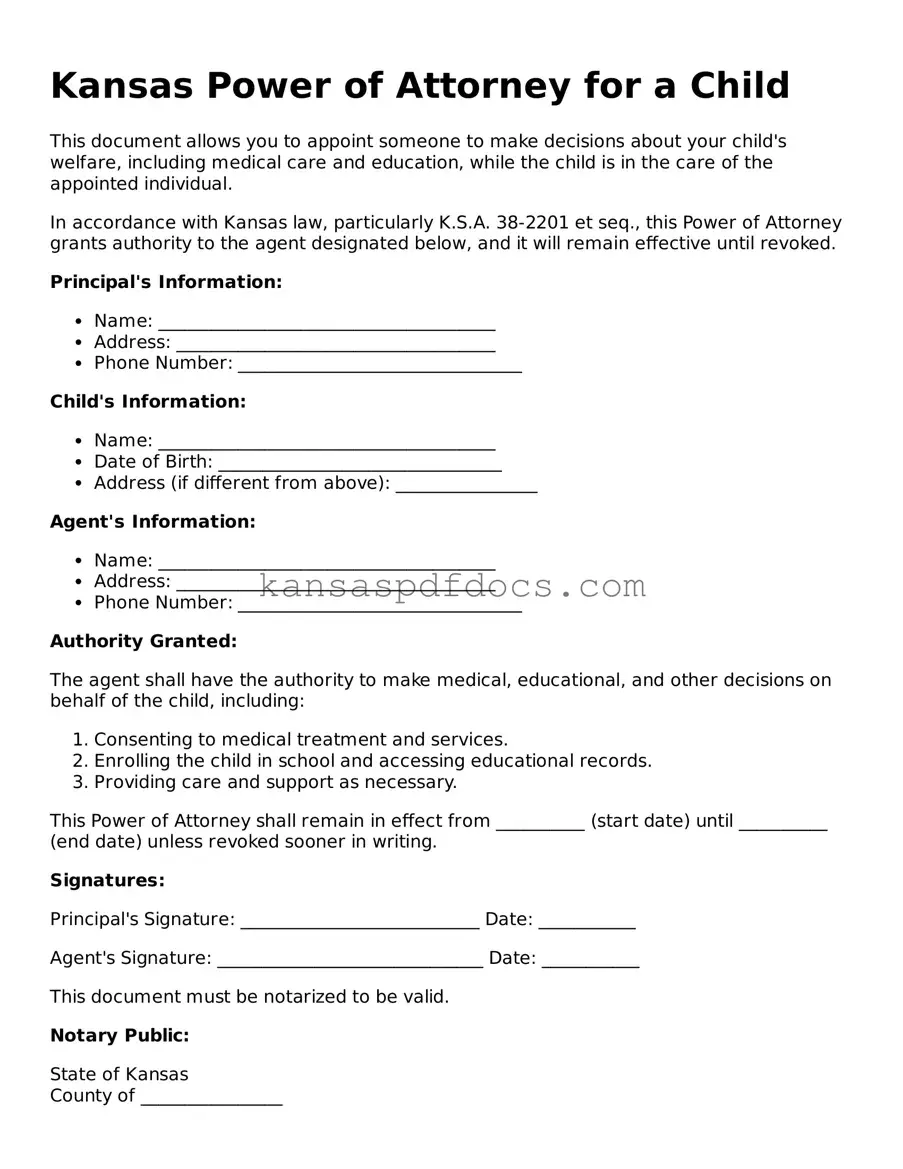Valid Power of Attorney for a Child Template for Kansas State
The Kansas Power of Attorney for a Child form allows a parent or legal guardian to designate another adult to make decisions on behalf of their child. This legal document can be essential in situations where the parent is unavailable, ensuring that the child's needs are met. Understanding the specifics of this form is crucial for anyone considering its use.
Access This Form Now

Valid Power of Attorney for a Child Template for Kansas State
Access This Form Now
Your form isn’t ready yet
Edit and finalize Power of Attorney for a Child online without printing.
Access This Form Now
or
Get PDF Form
